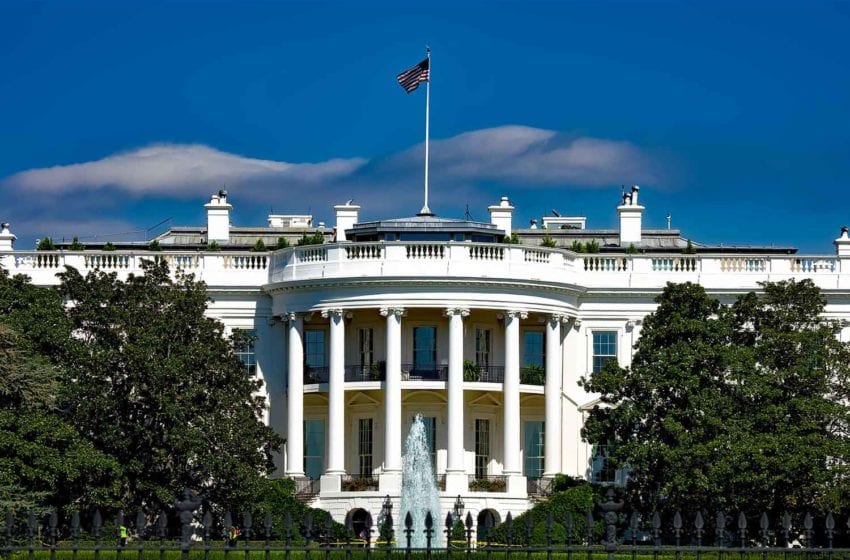
The recent U.K. Khan review contains a number of wrong-headed statements that need to be challenged.
By George Gay
To my way of thinking, there is little of value in the U.K. government-commissioned review by Javed Khan into government policies aimed at reducing the incidence of tobacco smoking in England to 5 percent or lower by 2030. The review, Making Smoking Obsolete, which was published on June 9, was apparently supposed to also reflect on government policies aimed at countering health inequalities within England, part of its “leveling up” agenda. But while there is little of value in the review, it is worth reading because it contains any number of wrong-headed statements that need to be challenged, one of which seems aimed at propping up the hypocrisy that—in England and many other places—regards tobacco smoking as bad but alcohol consumption as good.
In Part 2 of his review, in which Khan addresses the idea of prevention, of stopping people from taking up smoking in the first place, he says, in part, “I have considered various options for raising the age of sale. Should the government raise it from the current age of 18 to 21 in one go? Why not jump to 25? Will this be the ‘nanny state’ or ‘big government’ in action? How would this sit alongside the legal age to buy alcohol, to get married, to vote? Note, none of the others are likely to kill you!”
Literally speaking, this is true. Buying alcohol is highly unlikely to kill you. But consuming it, now that’s another thing entirely. According to Alcohol Change U.K., “[a]lcohol misuse is the biggest risk factor for death, ill health and disability among 15[-year-olds to] 49-year-olds in the U.K. and the fifth biggest risk factor across all ages.”
Of course, Khan, and other anti-tobacco, pro-alcohol operatives, would say that while tobacco smoking is a risk factor for death, ill health and disability when smokers consume cigarettes as they are intended to be consumed, it is only when alcohol is misused that it negatively affects health and leads to lethal consequences. But this, of course, is pure head-in-the-sand hokum. The U.K. National Health Service website is unequivocal in stating, “[t]here’s no completely safe level of drinking.”
“It’s recommended to drink no more than 14 units of alcohol a week, spread across three days or more,” the website states. “That’s around six medium (175 ml) glasses of wine, or six pints of four percent beer. There’s no completely safe level of drinking, but sticking within these guidelines lowers your risk of harming your health. Try using Alcohol Change U.K.’s unit calculator to work out how many units you drink.”
What the website doesn’t tell you is that, by its intoxicating nature, alcohol consumption does not lend itself to rational analysis of how much you have drunk or should continue to drink on any particular occasion. By design, it fuddles the brain and disguises misuse as having a good time. How many times are we told that cigarettes are designed to addict consumers and keep them smoking? But we are rarely told that alcohol is much the same—that alcohol by its nature is such that the more you drink, the more you feel like drinking more.
It is ironic, I think, that Khan chose to make his statement about alcohol in a review that was commissioned by a government department because, within a month of the review’s publication, the prime minister, Boris Johnson, had been forced to resign over his failure to act decisively when one of his whips—a person, it is worth noting, with the responsibility, in part, of ensuring the smooth running of parliamentary business—was allegedly involved in alcohol-fueled inappropriate behavior. Of course, it wasn’t only this alcohol-fueled incident that brought Johnson down. He had started tottering previously when he was involved in alcohol-fueled events in Downing Street during a time when, because of a Covid lockdown, such events had been declared by his government to be illegal.
Given this, it might have been expected that questions would have been raised about drinking alcohol, especially about the apparently numerous subsidized bars that the Palace of Westminster boasts. But no—there was hardly a murmur. And this speaks to the foreword with which Khan opens his review. “Most people don’t see smoking as a problem anymore,” reads his first sentence, to which the obvious rejoinder is: and clearly few people see drinking as a problem even when its use is prominent in bringing down a prime minister.
In the next sentence of his foreword, Khan makes the point that the nation has moved on from smoking, which tends to indicate that he believes that smokers are not part of the nation but outcasts, an idea he seems to endorse when he seeks in his review to have smoking, and by association, smokers, “denormalized.” But it’s his third sentence that I really like. “It’s no longer common for living room ceilings to be stained yellow from chain-smoking in front of the TV,” he remarks, without adding, “but the carpets are still stained with the vomit spewed out by drunks downing buckets of alcohol on top of cheap takeaways.”
A Blind Spot
I have no problem with alcohol consumption. But what is beyond my comprehension is how some people are able to condemn outright the problems caused by tobacco smoking while turning a blind eye to the much wider-ranging problems created by drinking alcohol. I think sometimes these people would sooner be the victim of passive drinking—of being knocked down by a drunk driver or assaulted by a drunk in the street—than being the victim of passive smoking—of being annoyed by the smell of burning tobacco.
As well as comparing tobacco smoking with alcohol consumption, Khan cannot resist an equally risky diversion toward Covid 19, suggesting, I think, that smoking presents a potential risk greater than that of viruses. “Tobacco manufacturers make lethal products, which have killed 8 million people in the U.K. over the last 50 years,” he writes. “That’s more than 400 people a day and far more than Covid-19.”
I assume that what is meant here is that the average number of daily deaths from smoking is greater than the average number of daily deaths caused by Covid-19, which seems like an odd comparison to make without adding caveats. Smoking tobacco is a lifestyle choice while contracting Covid-19, unless you’re really strange, is not.
One clue here is to be found in the fact that tobacco consumption raises huge amounts of revenue while Covid-19 just consumes revenue. Smokers die from smoking-related diseases, if they do, after 40–50 years of smoking while those who have contracted Covid-19 die, if they do, within days, weeks or months, so the years “lost” to smoking will generally be fewer than the years “lost” to Covid-19.
Additionally, we now know pretty much what happens when people smoke, but there is no agreement yet even on how to calculate the number of deaths caused by Covid-19, and the future of those who have had Covid-19 and survived is still being mapped out. There is simply no way that tobacco smoking threatens to destroy the human race, but the same cannot be said about viruses, antimicrobial resistance and environmental breakdown. It is time to introduce a sense of proportion—to get a grip.
More of the Same
Two of the major problems with the Khan review are that it contains little that is new and that it is mostly about scaling up those things that haven’t worked in the past. In addition, it seems to take no notice of the problems that England is facing at the moment, though this is perhaps down to the brief Khan was handed. Khan wants cigarette taxes to be increased by 30 percent, something he recognizes will cause the further impoverishment of some of the most financially vulnerable people in the country.
And, in an admission that this tax hike will prove a bonanza for those involved in the illegal trade in cigarettes, he wants a further, faster crackdown by the police and the courts on those involved in this trade. But what is the point of making such recommendations in a country where six police forces are in special measures, where one of those forces, London’s Metropolitan Police, has, as I understand it, lost the confidence and support of the public and is no longer able to police by consent, and where the courts, already with huge backlogs of cases, are the subject of strikes?
Khan seems to accept that the 12-year austerity program imposed by successive conservative governments has “skinned to the bone” smoking interventions. “The results of disinvestment are stark,” he writes. “Since 2010, the number of people using stop-smoking services reporting a successful quit attempt has fallen by 72 percent. From 380,000 people then to 105,000 now.” But he doesn’t seem to appreciate that the police and the courts have also been starved of funds to the point where they are unable to function as they should.
Inconsistencies
Khan’s review has many uncompleted comparisons, inconsistencies and oddities, such as when he speaks of “illicit enforcement” when presumably he means law enforcement activities against those involved in illegal activities. And he says at one point that he wants to put out of business the criminal gangs behind the illegal trade in cigarettes, seemingly having failed to notice that the government for which he is producing the review is also something of a criminal gang that has shown itself willing to break national and international law to get its own way.
Despite his claiming to be interested in the dissemination of accurate information, Khan seems to also be blind to the fact that, in England, cigarette packs are covered with graphic health warnings that amount to falsehoods in the absence of proper explanations about what proportion of smokers suffers from the particular medical complaints depicted, what proportion of smokers suffers from those complaints to the extent depicted and what proportion of nonsmokers suffers from these conditions.
Some bottles of alcohol, on the other hand, come in what I would describe as colors likely to appeal to young children, especially girls aged four to seven, and with labels depicting sophisticated young people having a good time. There are no graphic warnings on these bottles showing diseased livers and brains and none showing bodies mangled in car wrecks or with faces disfigured by broken glass. And yet, Khan wants to go further in the case of cigarettes. With no room for maneuver on the pack, he wants to attack the cigarettes themselves with more misleading warnings. He wants to choke any enjoyment out of consuming cigarettes, even in the case of committed smokers.
Interestingly, one of his ideas is to mandate that cigarette paper should be colored brown or green, without, I assume, having carried out any experiments into whether the coloring agents would add to the toxicity of those cigarettes. Presumably, he picked brown and green because his personal view is that these colors are unattractive. Of course, here he feeds into the great myopia of our government and our age. The government doesn’t like green either. It’s an embarrassment that daily reminds them of how it, along with most governments around the world, is failing in respect of the environment. What the government seems to have overlooked, however, is that this failure means that it doesn’t need to worry about making smoking obsolete. Destroy the environment and you make smoking obsolete. Dead people don’t smoke.
Countering the Myths?
As suggested above, Khan often mentions the need for the dissemination of accurate information to counter the myths around smoking and vaping, but what he is talking about is information based on a version of reality concocted by people who make their living out of opposing the consumption of tobacco and will retire on comfortable pensions having failed to achieve that which they purportedly set out to do. Most of these antis have probably never smoked and probably have never lived in financial poverty the way that many smokers do, partly because of the oh-it’s-in-your-best-interests tax hikes that the antis have recommended to governments greedy for revenue. The antis probably never question whether people living in abject poverty actually want the extra five years of life without adequate food, shelter and heating that giving up smoking may or may not impose on them. And the antis will probably live their lives without ever questioning whether their drinking, opioid or cocaine habits might make what they are up to a tad hypocritical.
Although Khan claims to be interested in accurate information, he perpetuates the myth that it is somehow bad for your health to sit outside a pub or restaurant drinking if there is a smoker on the horizon, while failing to point out that, if you are 49 years of age or younger, you are more likely to be harmed by your drink than by a whiff of tobacco smoke. And he fails to warn that, if you are worried about your health, it is not the tiny puffs of visible tobacco smoke that should concern you the most but the invisible, ubiquitous air pollution, the inhalation of which, worldwide, kills more people than the consumption of primary and secondary tobacco smoke.
Khan seems to be certain of a couple of things. One is that longevity is a goal that should be embraced by everybody—or, in the case of those who refuse to do so, embraced on their behalf. “The single most important thing you [my emphasis] can do to improve someone’s [my emphasis] physical health, mental health and to get them to live a longer life is to help them to give up smoking,” he writes. Of course, a curious reader of the review might be pardoned for asking who is this you, and who is this someone? Well let me give you my best attempt at definitions. You comprise all the good, financially well-off people bulging at the seams with the right stuff that they are just bursting to share with someone while someone comprises the bad people who are lacking the right stuff and need to be guided onto the true path by you.
There seems to be no hint in the Khan review that rational arguments could be put forward for tobacco smoking. There’s no hint that smokers might have independent minds with which they have examined the facts and with which they have decided they want to continue with their habit. In fact, this idea is borne out in one sentence of the review that I found especially instructive. “For example, many people wrongly think smoking relieves their stress, but the science shows us that it is quitting that reduces anxiety and depression,” Khan wrote. Wrongly think! What towering scientific arrogance! The idea here is that through the use of some gadgetry, scientists working in a field that is as yet little understood can experience an emotion in a way that it is being experienced by an individual independent of the scientists—only more accurately. It reminds me of the old joke that I read again somewhere quite recently in which two behavioral scientists meet in the street and one says to the other, “You’re fine, how am I?”













